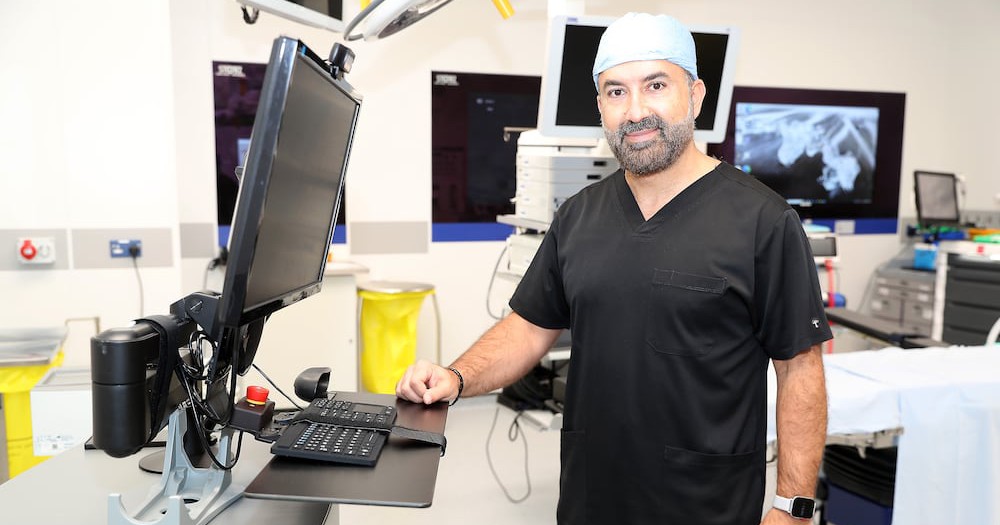Non-invasive ultrasound therapy for prostate cancer to begin in Dubai

Dubai is set to introduce high-frequency ultrasound technology to combat prostate cancer, marking a significant advancement in less invasive treatment options. This groundbreaking method, known as High-Intensity Focused Ultrasound (HIFU), will be available to a select group of men whose medical profiles are more suited to this alternative treatment compared to traditional surgery or radiation therapy.
How does it work?
HIFU employs high-frequency sound waves delivered by a specialized machine to precisely target and destroy cancerous tissue in the prostate. This technology, which costs around $600,000, aims to minimize common side effects associated with prostate cancer treatments, such as incontinence and erectile dysfunction from surgery or fatigue and bowel issues from radiation therapy. The initial treatments will be administered at the Clemenceau Medical Centre Hospital in Dubai, with plans for wider availability in the future.
Professor Rabii Madi, a consultant urologist and expert in robotic surgery at CMC in Zabeel, explains, "The Sonablate machine will focus the ultrasound waves to target prostate cancer cells, making it suitable for men in low to intermediate-risk groups."
Why does it matter?
Prostate cancer is notoriously difficult to treat, especially in its early stages, often leaving patients with limited options. Traditional treatments can have significant side effects, affecting quality of life. HIFU offers a less invasive alternative with fewer side effects, a better quality of life, and faster recovery times. This precision therapy is already in use in about 60 countries, and its introduction in Dubai marks a significant step forward in the region's medical capabilities.
"Failure-free survival, the definition used by medics to assess how successful treatment has been with no further evidence of disease or therapies, was seen in 68 percent of patients seven years after HIFU was delivered," noted Dr. Madi.
The context
Prostate cancer is the most common cancer in men, affecting about one in eight adult males, with higher incidence rates in men of African descent. In the UAE, it is the second most common cancer among men, accounting for 11.9% of all male cancers, according to the WHO's Global Cancer Observatory.
Early detection of prostate cancer remains challenging due to the lack of symptoms in the initial stages. Traditional detection methods, like the PSA blood test, can result in false positives, leading to unnecessary invasive procedures. Innovative research is underway to develop more accurate and less invasive detection methods, such as a simple spit test that analyzes DNA from saliva to assess genetic risk.
Dr. Rishikesh Pandya, a consultant uro-oncologist at Burjeel Medical City, emphasizes the importance of these advancements: "HIFU has been studied and evaluated over years in comparison to mainstream treatments and surgery. It is not yet offered as a primary line of treatment, as there is a chance of resurgence of the cancer which would then also need surgery or radiation."
As Dubai leads the way in the Arab world with the introduction of HIFU, it represents a beacon of hope for patients seeking more effective and less invasive treatments for prostate cancer.
💡Did you know?
You can take your DHArab experience to the next level with our Premium Membership.👉 Click here to learn more
🛠️Featured tool
 Easy-Peasy
Easy-Peasy
An all-in-one AI tool offering the ability to build no-code AI Bots, create articles & social media posts, convert text into natural speech in 40+ languages, create and edit images, generate videos, and more.
👉 Click here to learn more


